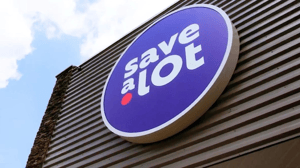New Jersey earmarks millions in funding for supermarket development in food desertsNew Jersey earmarks millions in funding for supermarket development in food deserts
State agency paves the way for grocery retailers to receive up to $50 million in tax credits this year for store projects in designated communities.

Taking aim at food insecurity, the state of New Jersey is gearing up to offer grocery retailers financial incentives to open new supermarkets or upgrade existing stores in areas identified as food deserts.
The New Jersey Economic Development Authority (NJEDA) board on Wednesday approved proposed rules for the $240 million Food Desert Relief Tax Credit Program, which aims to attract and retain new supermarkets in 50 “food desert communities” (FDCs). The state agency designated the final list of FDCs—located across the state but primarily in urban areas—in February 2022.
The Food Desert Relief Tax Credit program creates two types of tax credits to draw supermarket development and instill business resiliency “for a lasting impact on communities,” NJEDA said. The Financing Gap Tax Credit will provide up to 40% of a project’s costs for development of the first new supermarket located in an FDC and up to 20% for the second new grocery store. Meanwhile, the Initial Operating Cost Tax Credit will be available to help supermarket operators meet potential shortfalls in initial operating income.
New and rehabilitated supermarkets within FDCs are eligible for both credits. On Wednesday, NJEDA’s board approved the sale of up to $50 million of the $240 million in tax credits for 2023. The proceeds of those credits are earmarked for funding future grant, loan and technical assistance programs under the Food Desert Relief Act (FDRA), which allocates approximately $40 million per year for six years.
The FDRA was established by the New Jersey Economic Recovery Act (ERA) of 2020 and signed into law by Gov. Phil Murphy in January 2021. Under the ERA, NJEDA’s board approved rules that pave the way for the Food Desert Relief Tax Credit Program to get under way this year. The proposed regulations remain subject to the governor’s veto period and a review by the Office of Administrative Law before going into effect.
“Food insecurity is a widespread and longstanding issue that has been exacerbated by the pandemic, and New Jersey is taking innovative steps to ensure no resident goes hungry,” Murphy said in a statement. “By expanding grocery options in an intentional manner, more families across our state’s food desert communities will be able to put affordable and healthy food on their tables. Fighting food insecurity fosters greater well-being for countless communities and families.”
Ready access to fresh, nutritious foods
Besides being located within FDC boundaries, supermarket operators seeking the food desert tax credits must be the first or second grocery store in a FDC and show their project wouldn’t be feasible without the credit. Eligibility requirements for the food desert relief program also include acceptance of federal benefits such as the Supplemental Nutrition Assistance Program (SNAP) and the Special Supplemental Nutrition Program from Women, Infants and Children (WIC) and participating stores remaining open for at least seven years.
In addition, supermarkets receiving the credits must be at least 16,000 square feet, with 90% of their retail space devoted to food and related products and at least 10% of space allocated to fresh and/or frozen fruit and vegetables. They also must host a community listening session in the FDC at least once annually.
Grants and loans for equipment, technology costs and other food security initiatives are available via the program as well to food retailers within FDCs, including supermarkets and grocery stores of at least 16,000 square feet, midsize food stores of 2,500 to 16,000 square feet, and food stores of less than 2,500 square feet, plus other entities supporting food security.
The FDCs designated by NJEDA span all 21 New Jersey counties and cover more than 1.5 million residents. According to a January 2022 U.S. Census Bureau survey, nearly one in 13 New Jersey households didn’t have enough to eat in the previous seven days, the agency reported.
“Every New Jersey resident deserves equitable access to fresh and healthy food options, no matter their ZIP code. The NJEDA is committed to fighting food insecurity, and the Food Desert Relief Tax Credit program will help bring new grocery options to food deserts across the state,” stated NJEDA CEO Tim Sullivan. “Under Gov. Murphy’s leadership and in partnership with Speaker Craig Coughlin and the legislature, New Jersey is working to ensure nutritious foods are accessible and affordable in every community, and this program will further advance the ERA’s goals of fighting food insecurity, creating jobs and uplifting neighborhoods.”
About the Author
You May Also Like






